Xi arrives in Moscow as Beijing seeks to position itself as a peacemaker
Xi Jinping’s visit to Russia is aimed in part at positioning Beijing as a potential mediator between Moscow and Kyiv.
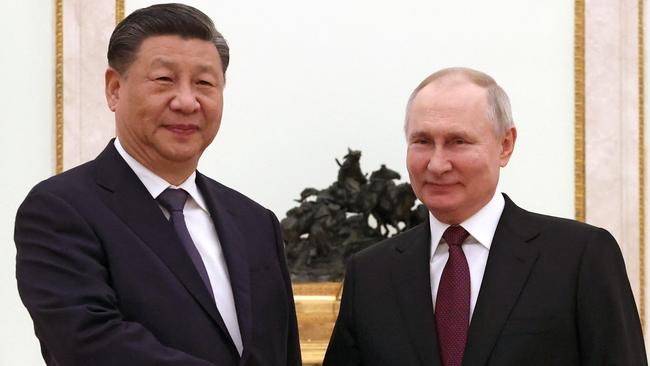
Chinese leader Xi Jinping’s visit to Russia this week is aimed in part at positioning Beijing as a potential mediator between Moscow and Kyiv - but with both sides gearing up for spring combat operations, neither is ready now to talk about peace.
Mr. Xi, who arrived in Moscow on Monday for a summit with Russian President Vladimir Putin, faces an uphill struggle to establish himself as an honest broker in the conflict, given his vocal backing of Russia in the wake of Mr. Putin’s invasion of his smaller neighbor.
After talks with Mr. Putin, Mr. Xi plans to speak with Ukrainian President Volodymyr Zelensky, The Wall Street Journal has reported. Mr. Zelensky has said that he welcomes Chinese efforts and that peace depends on Russia withdrawing from all occupied Ukrainian territory.
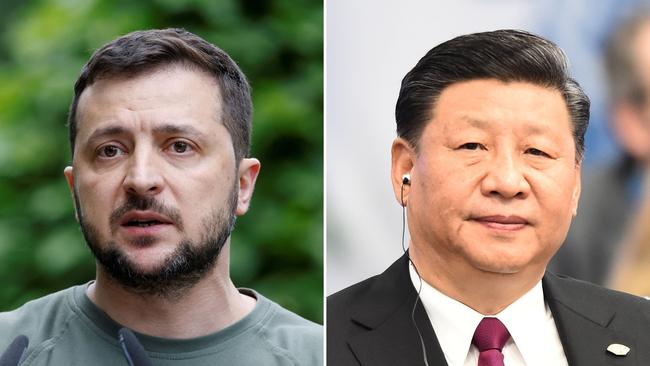
On Monday, the Kremlin welcomed Mr. Xi with great fanfare, kicking off a visit that is aimed at showcasing the countries’ close ties. A military band greeted the Chinese leader’s arrival in the Russian capital.
Mr. Xi’s visit to Russia is expected to focus primarily on bilateral relations and the leaders are set to sign about a dozen agreements, including one on economic cooperation through 2030, the Kremlin said.
Before starting informal talks, where they are likely to discuss what the Kremlin described as “the most sensitive issues in the relationship between the two countries,” Messrs. Putin and Xi were shown on Russian state television sitting side by side in a ceremonial room inside the Kremlin.
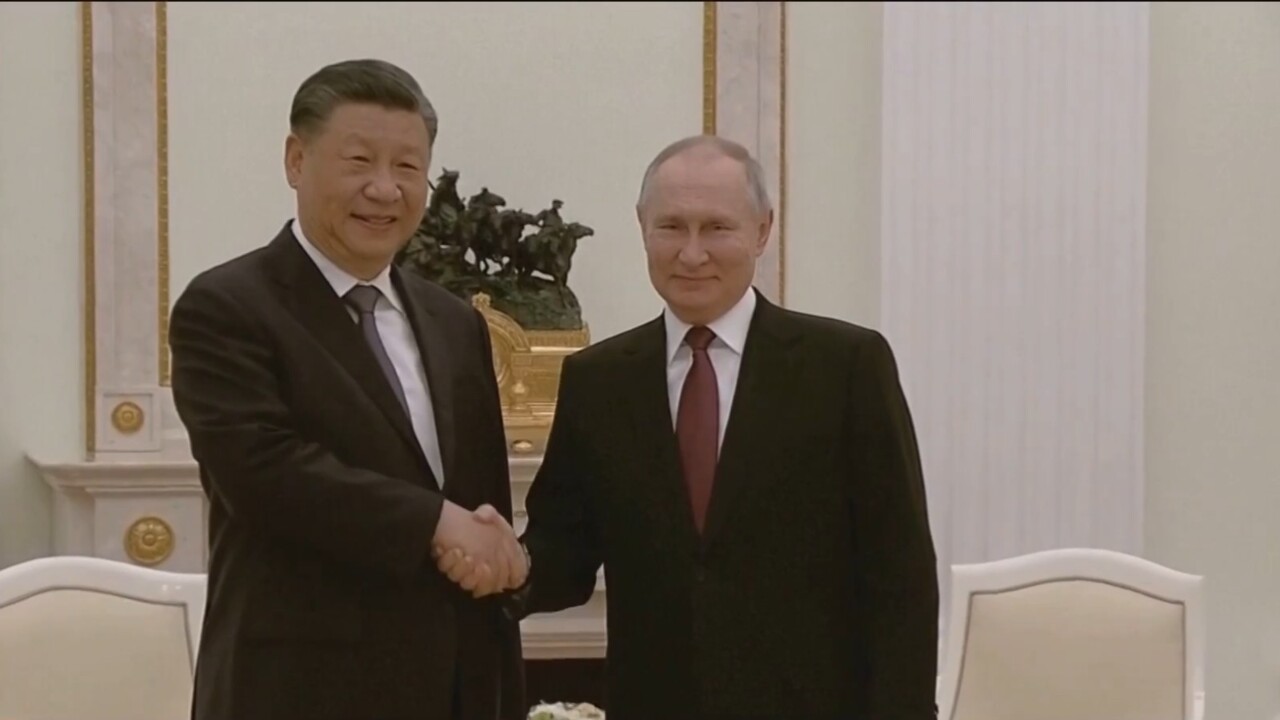
During that meeting, the pair -- who often boast of a close personal rapport that undergirds their countries’ relations -- seemed relaxed together. Both were smiling and referred to each other as a “dear friend.” It was in stark contrast to the war in Ukraine, where, according to Western estimates, tens of thousands of soldiers on both sides have been killed or wounded in more than a year of fighting.
Mr. Putin told Mr. Xi that he had read a recent proposal by Beijing to resolve the Ukraine conflict and that Moscow was “always open to the negotiation process.” Speaking through an interpreter, Mr. Xi told the Russian president that their countries have “many similar goals” and that “with our cooperation and interaction, we will definitely achieve these goals.” The pair then shared an elaborate lunch including venison and quail, according to Russian state media. Mr. Putin will host a state dinner for Mr. Xi on Tuesday evening.
China, which touts its relationship with Russia as a “friendship without limits,” has sought to cushion the blow of Western sanctions on Moscow by buying more Russian oil and natural gas and boosting shipments of electronics, computer chips and other goods.
It has also offered consistent diplomatic support to Mr. Putin. China’s Foreign Ministry on Monday chided the International Criminal Court, saying it should “steer clear of politicization and double standards” after it issued an arrest warrant for Mr. Putin for alleged war crimes.
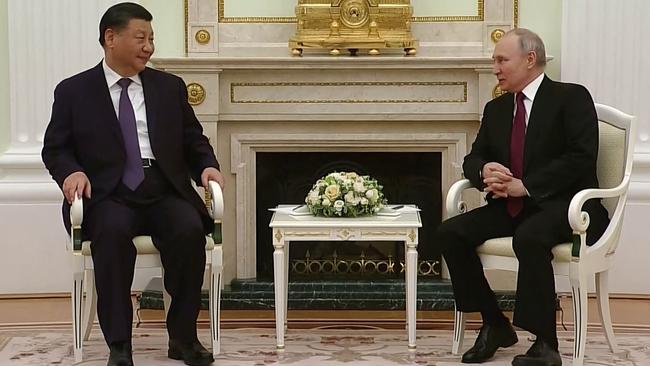
U.S. officials warn that Beijing is considering sending weapons to help Mr. Putin, whose armed forces have been hindered by supply shortages. Washington and Europe last month dismissed out of hand a Chinese diplomatic initiative to end the Ukraine conflict.
All of that makes it likely, analysts said, that the main audience for China’s public-diplomacy campaign is countries in the developing world where it is seeking to win influence and present an alternative to the West’s efforts to back Ukraine.
In late February, Beijing issued a 12-point document, titled “China’s Position on the Political Settlement of the Ukraine Crisis,” using its preferred moniker for Russia’s yearlong invasion of Ukraine. The paper offers few details and presents a list of conditions largely in keeping with international norms, such as respect for territorial integrity and the cessation of hostilities.
The Chinese proposal contains several barbs aimed at the U.S., whose arms transfers to Ukraine Beijing says have added to suffering in the war. The plan calls for an end to unilateral sanctions and for all parties to abandon what it terms a Cold War mentality.
“The paper gives China another chance to blame the U.S. as the primary instigator of the conflict and the biggest force in prolonging it,” said Alexander Gabuev, a senior fellow at the Carnegie Endowment for International Peace.
Russia is currently undertaking a broad offensive in eastern Ukraine. Meanwhile, Kyiv is gearing up for its own counteroffensive, expected later this spring, hoping a continuing mobilization and new Western arms deliveries will give it the punch to push the Russians as far back as possible before winter sets in again.
China’s Ukraine proposal is part of a broader effort to show that it can be effective at what Mr. Xi has termed “big-power diplomacy.” Earlier this month, Beijing brokered an agreement to restore diplomatic relations between Saudi Arabia and Iran, in which it leveraged economic ties with both countries to help bring the longtime rivals together. China even secured agreement from Iran and a number of Arab countries to meet in a leaders summit in Beijing later this year, people familiar with the situation have told the Journal.
Beijing’s attempts to raise its diplomatic stature are in part a response to what it describes as U.S.-led efforts to contain China.
Some critics say the Chinese plan is less of a road map to peace than a way of deflecting criticism over its relations with Russia, which is becoming slowly more dependent on Chinese money as Western sanctions bite.
“It’s a cover for deepening ties with Russia and pushing back against Western criticism against China,” said Mr. Gabuev. “The optics of the trip are terrible in the West so the peace plan gives Xi an excuse to be traveling to Moscow.” Mr. Xi has sought to maintain relations with both Moscow and Kyiv. Mr. Xi plans to talk to Mr. Zelensky for the first time since the start of the war, likely after his visit to Moscow.
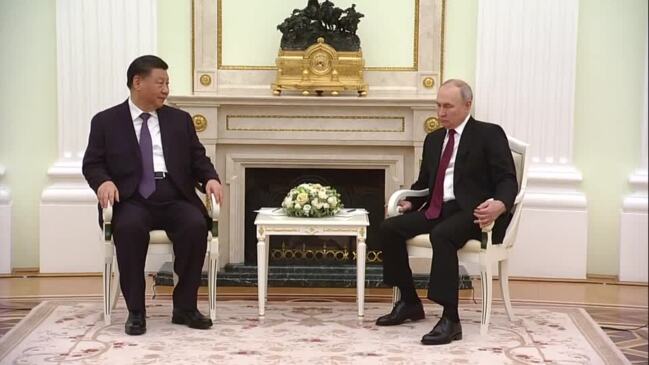
Last week, China’s Foreign Minister Qin Gang made a rare telephone call to his Ukrainian counterpart, Dmytro Kuleba, during which he blamed the U.S. for protracting the crisis and urged that the conflict be solved through negotiation.
Ukraine says there can be no peace until Russian troops leave Ukraine entirely, including the Black Sea peninsula of Crimea and parts of eastern Ukraine that Moscow has occupied since 2014.
Mr. Zelensky praised China’s efforts in publishing a position paper on the conflict and welcomed Beijing’s call to respect nations sovereignty, though he said the document included gray areas that needed clarification.
“The fact that China started talking about Ukraine is very good,” he said.
Ann M. Simmons contributed to this article.
The Wall Street Journal


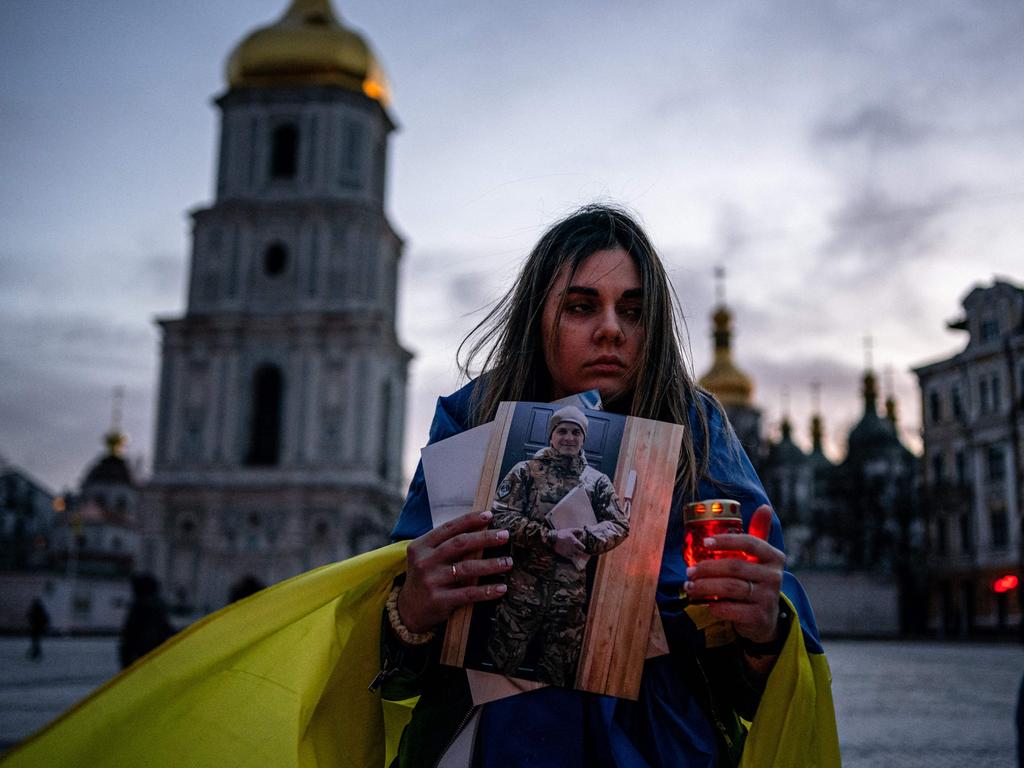


To join the conversation, please log in. Don't have an account? Register
Join the conversation, you are commenting as Logout